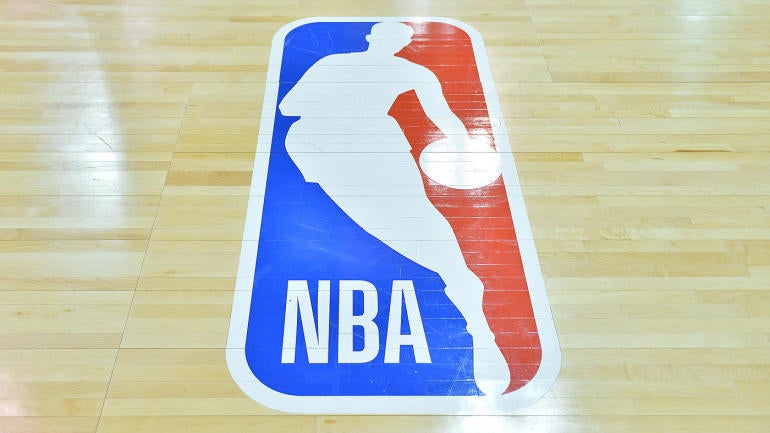
Small-market NBA teams are mad about the buyout market. Many executives don't like that Blake Griffin and LaMarcus Aldridge gave up guaranteed money to join the Brooklyn Nets. They don't like that Andre Drummond signed with the Los Angeles Lakers on a minimum contract, either. "This is creating a competitive advantage for the large, destination markets," one front-office person told Sports Illustrated's Howard Beck. "And it's another inequity for the small markets." The NBA is listening to gripes like this, and it is reportedly open to discussing potential reforms with the National Basketball Players Association.
From ESPN's Adrian Wojnarowski:
When the NBA and NBPA reconvene ahead of the 2023-2024 CBA renewal talks, the NBA plans to consider wrapping this buyout conversation into broader discussion, sources said. Commissioner Adam Silver's office doesn't see so much of an issue of fairness between big and small markets, but perhaps more a process that it is contradictory to the financial system's goals. The idea of adding an impact player for simply the cash and cap cost of a prorated minimum salary stands somewhat in contradiction to the prohibitive luxury tax costs that are designed to accompany big payrolls.
The NBA does want to find a way to make the buyout pool players available to more teams than only the contenders, sources say, but that's hard to do without significant changes to the process. That'll take the league pushing hard on the NBPA -- with an understanding that its agents and players will want to push back. For all of the difficult CBA discussions ahead on the league's financial system, it'll take more than just front office executives to drive significant change. Owners will have to take up the cause, and they'll have to make it a priority to change.
As Wojnarowski notes, the players association wants players to have as much agency as possible. For the players to agree to a more restrictive system, they would need to be incentivized somehow. As it stands, players who accept buyouts are usually on expiring contracts, languishing on teams that are far from title contention. Those teams know these players won't be a part of their future, and negotiating a buyout means creating minutes and a roster spot for someone who might be. It also means saving money.
The best argument against reform is that none of this is particularly consequential. The history of the buyout market is littered with failed, forgettable experiments. And while Aldridge, Griffin and Drummond chose glamour markets, this is far from inevitable. Marvin Williams chose the Milwaukee Bucks over bigger markets last season, and Gorgui Dieng chose the San Antonio Spurs over bigger markets -- and better teams -- a few days ago.
Whatever the front office objections, the NBA will counter with this data: Over the past 15 years, there are 39 buyout players who averaged two games and 10 minutes per NBA playoff round. Twenty were signed into top-15 markets -- and 19 into the rest. Out of the 13 of 39 players joining teams that advanced to the conference championship, three were signed in top-15 markets. It has always been rare for buyout players sway playoff destinies and championship chases, but the pursuit of them is forever intensive.
Where things get trickier is the secondary effects of buyout season. Sports Illustrated quoted a general manager complaining that teams had to agree to buyouts to avoid drawing the ire of agents, who could punish them by keeping clients away in free agency. On his podcast published Wednesday, JJ Redick spoke at length about his exit from the New Orleans Pelicans, accusing executive David Griffin of misleading him about sending him to one of his preferred destinations. Redick is 36 years old, on an expiring contract and represented by CAA. He said he requested a trade in November, assumed he'd be bought out at the deadline and ended up being traded to the Dallas Mavericks in a deal that netted New Orleans a second-round pick. Redick said that he doesn't expect his agents to trust Griffin's front office again.
The Mavericks traded for Redick despite the entire league knowing he wanted to be within driving distance of Brooklyn, where his family lives. Not every front office is willing to take this kind of risk. Teams in the Pelicans' position would always rather get something back for the player than buy him out, and they're not always lucky enough to find a last-minute buyer. When contending teams expect they can add a decent buyout guy for free, they will naturally be reluctant to offer anything of value for comparable rotation players in trade negotiations.
In other words, if the buyout market didn't exist in its current form, maybe New Orleans would have had better offers on the table for Redick, and maybe the Oklahoma City Thunder could have traded Mike Muscala for a second-round pick. This, however, hardly warrants panic about The State of Things.
If the rich are getting richer here, it's happening in a pretty standard way. Marc Gasol sacrificed millions to sign with the Lakers for the minimum in the offseason, as did Montrezl Harrell when he signed for the non-taxpayer midlevel exception. None of this year's buyout guys are necessarily going to play more playoff minutes than Dwight Howard, another former All-Star who is backing up Joel Embiid on a minimum contract. Was anyone outraged when Howard signed with the Philadelphia 76ers? How does all the grumbling about DeMarcus Cousins signing with the Golden State Warriors in 2018 look in retrospect? As much attention as the buyout market is getting right now, when team owners are preparing for the next round of CBA negotiations, can you imagine them making it a priority?
"Market" - Google News
April 02, 2021 at 03:13AM
https://ift.tt/31EeTON
After exec complaints, NBA and union could discuss buyout market in next round of CBA negotiations, per report - CBS Sports
"Market" - Google News
https://ift.tt/2Yge9gs
https://ift.tt/2Wls1p6
/cloudfront-us-east-1.images.arcpublishing.com/bostonglobe/VNG7YMZTRWJ5WBFTJ5NVETPCQI.jpg)
No comments:
Post a Comment